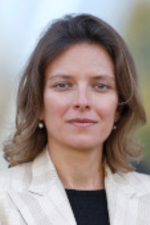Classical economists like Adam Smith are rarely considered particularly religious. Yet they faced an environment at the time that was shaped by creeds such as the Protestant or Anglican churches. In this respect, it is important to price religious-cultural influences into the works and resulting doctrines of the (pre)classical period, which are with us to this day. At the SAFE Policy Web Seminar on “Religious Roots of Capitalism” on October 11, 2021, Harvard economist Benjamin Friedman emphasized that these influences are a clue in the search for where our modern understanding of economics comes from.
At the beginning of the event, Friedman made it clear that it was not a matter of causality between religion and homo economicus. Indeed, the Puritan-Calvinist ethic is still reflected in the economic behavior of people today, for example in a comparison of the annual working hours per employee in Europe and the USA. The aim of Friedman’s current book, “Religion and the Rise of Capitalism”, is rather to get to the bottom of the roots of modern economies. In the seminar organized and moderated by SAFE Senior Policy Fellow Hans-Helmut Kotz, philosopher and social scientist Lisa Herzog from the University of Groningen and economist Harald Hagemann, former professor of economics, especially growth and distribution, at the University of Hohenheim, discussed his observations with Friedman.
“The role of religious thought had a decisive influence on both the early and later development of the U.S. economy,” Friedman explained in his lecture. This development can be seen in the dispute over free trade and protectionism, the debate about the function of the state in the 19th century, and the "New Deal" policy of U.S. President Franklin D. Roosevelt, which reflected the Christian social dimension. A role that persists in social trends today, he said. “We see this in the U.S. when evangelicals in Mississippi and Kentucky from comparatively low socio-economic backgrounds vote against their economic interests for conservative programs in elections that want to limit the welfare state,” Friedman explained.
In the discussion, Harald Hagemann noted that the Harvard professor postulates a kind of “Max Weber upside down” by shifting the focus away from economic behavior. Friedman’s remarks focus on the effects of Protestant religion on economic understanding and thus only on certain currents. The economic success of Catholic-influenced locations, such as in northern Italy, would not be taken up.
“Every scientific discipline starts from certain cultural presuppositions,” Lisa Herzog held. But the way religion influences economic behavior varies from country to country, she said, which also affects how we understand the role of markets. In Europe, for example, the market is a possible example of social integration. The assumption that markets are self-regulating, as is deeply rooted in the economic understanding of Western democracies, is problematic, she said. “Many of the challenges we face today require collective action, while markets focus on individual action. This cultural individualism increasingly presents us with more problems,” Herzog mentioned.
SAFE Policy Center contact


